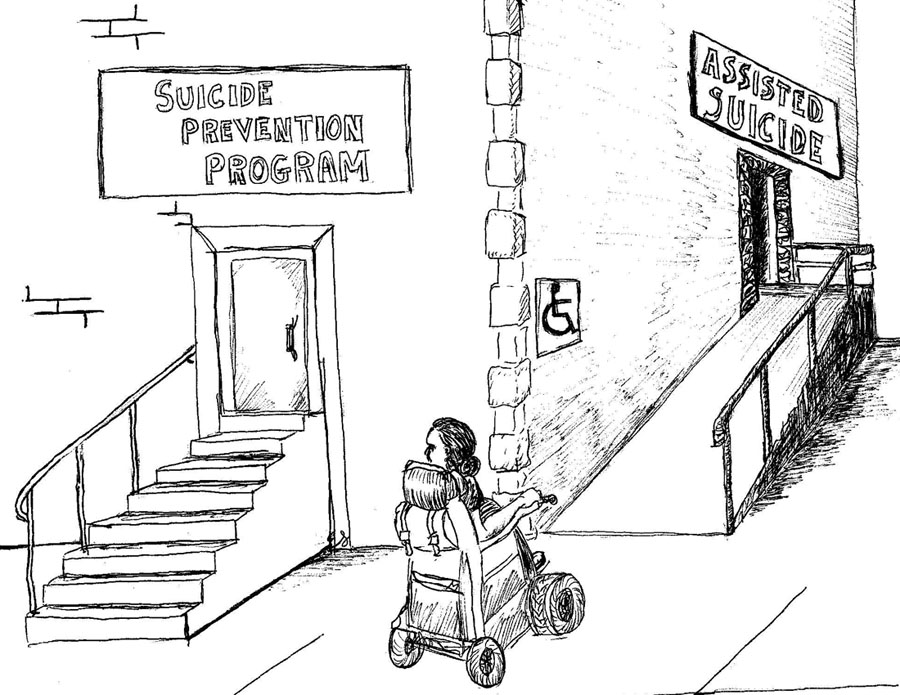
What does the future hold for the disabled when euthanasia is legal?
As the cartoon above suggests, disability activists fear that euthanasia could become a cheaper option for medical care. In a position paper published by the Anscombe Bioethics Centre, in the UK, a Canadian expert in disability studies contends that “While the expansion of [euthanasia and assisted suicide] has been motivated by a desire to end suffering and respect autonomy, in doing so we have created significant risk to disabled persons in a world which largely sees their lives as less valuable, as ones of inevitable suffering and as not worth living.”
Professor Tim Stainton, director of the Canadian Institute for Inclusion and Citizenship, believes that a “quiet eugenics” becomes more acceptable when euthanasia and assisted suicide (EAS) have been legalised. In many countries, children with Down syndrome are already being aborted after pre-natal testing. In Belgium and the Netherlands, neo-natal euthanasia is technically illegal but permitted in some circumstance. Professor Stainton says that “Significant numbers of these cases involve neonates with non-life threatening, medically treatable conditions and disabilities.”
He cites studies of the ableist attitudes in the medical profession. One recent survey found that 82% of practicing physicians in the US believed that “people with significant disability have worse quality of life than non-disabled people”. This makes “unbiased practice of EAS with regards to disabled individuals … highly questionable,” he writes.
Attitudes towards the disabled ignore what scholars called “the disability paradox” – that “many with persistent and serious disabilities report that they experience anywhere between a good to an excellent quality of life”. But people with an ableist bias are unable to appreciate that.
To return to the message of the cartoon, Professon Stainton writes that “A key concern of the disability community is that people will seek access to EAS because they are unable to secure the degree or types of disability supports and accommodations they need to live a full and meaningful life.”
What does the future hold for the disabled in countries with EAS? Professor Stainton fears that broad public support for “mercy killings” will create a climate in which parents will be able to have disabled children euthanised. “It is also not inconceivable that families with decision-making control or influence will choose EAS for their children when faced with insurmountable barriers to securing appropriate supports.”
